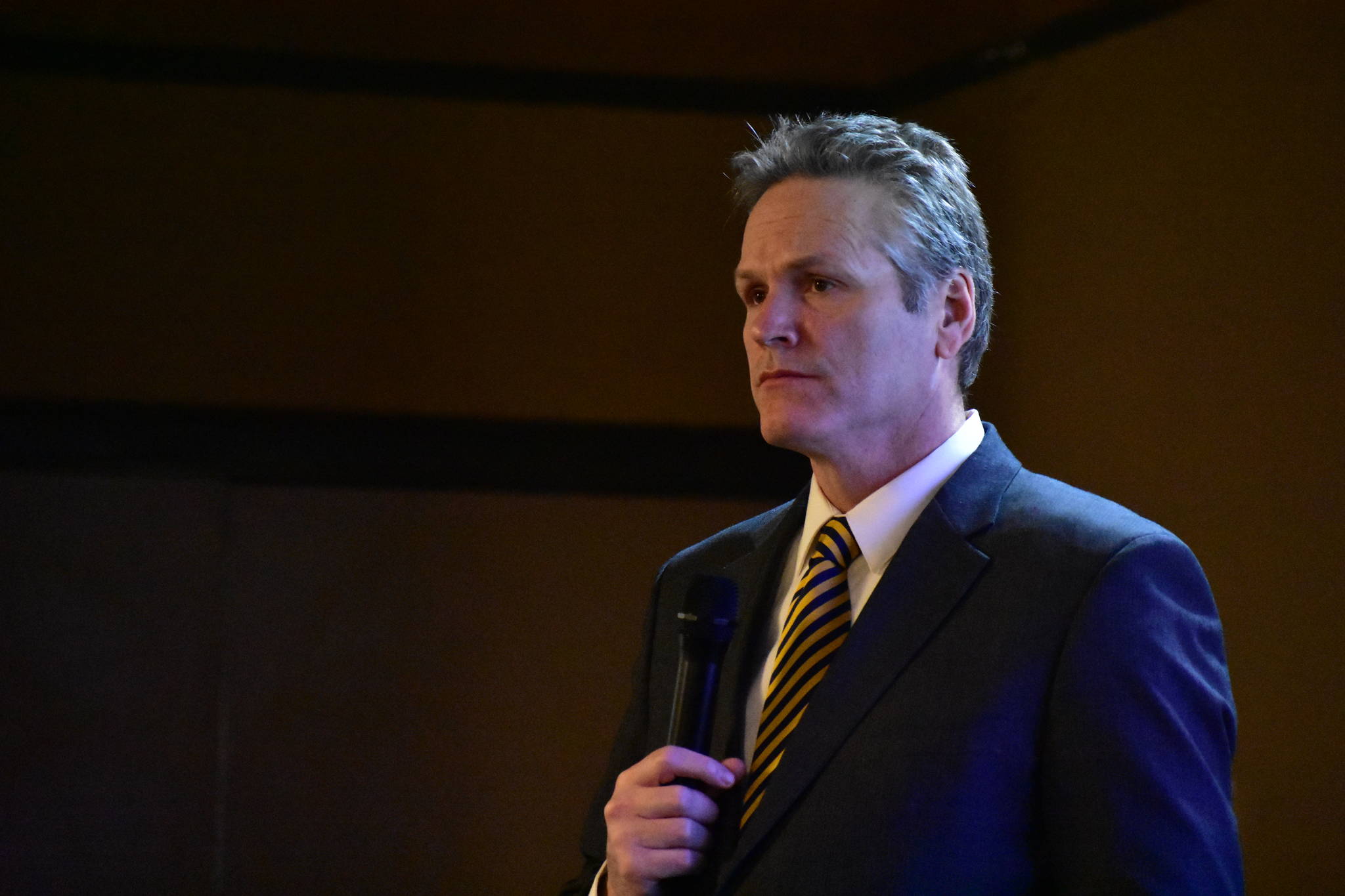By BECKY BOHRER
Associated Press
Alaska Gov. Mike Dunleavy will pay $2,800 to reimburse the state for ads an independent counsel found were political and violated ethics rules, according to a recently released settlement.
The agreement resolves allegations that Dunleavy’s office improperly used state funds for online and printed ads for partisan political purposes. The Republican governor said he did not believe he had violated the state executive ethics act.
“Nevertheless, I believe it is in the best interests of the state to resolve these complaints, and, for this reason, I am reimbursing the state for the cost of these advertisements and ensuring that my staff undergoes all appropriate ethics training,” he said in a statement included in the Friday settlement.
Last year, Matt Shuckerow, then a Dunleavy spokesman, said the governor’s office received guidance from the state Department of Law that such communications were allowed.
It’s unclear who made the ethics complaint. A group that’s trying to recall Dunleavy also has accused him of misusing state funds for partisan online ads and mailers.
Ethics complaints against the governor are referred to the state personnel board, which hires an independent counsel, according to the Department of Law. That attorney in this case was John Tiemessen.
Tiemessen found “the circumstances support an inference” that ads about two officeholders, who had filed paperwork signaling plans to seek reelection, were for a “partisan political purpose,” the settlement says. He blamed “quick decision-making and inadequate education” around what the ethics act requires, “rather than improper intent,” the agreement says.
The settlement doesn’t name the two officeholders, though Dunleavy said they were lawmakers. He said his staff did not know at the time that the lawmakers had filed notices of intent to run. He said he had no role in drafting or approving the ads.
Tiemessen said the law makes Dunleavy “strictly liable for actions taken by his staff” that violate the ethics law, “irrespective of the intent of the governor,” according to the settlement. Dunleavy disagreed with that interpretation.
Tiemessen did not immediately return a phone message seeking comment Tuesday. Brewster Jamieson, an attorney for Dunleavy, referred requests for comment to the governor’s office.
According to the settlement, other communications were allowed or there wasn’t enough evidence to conclude they were improper.
A Dunleavy spokesman, Jeff Turner, said the governor would pay the $2,800 using personal money.
The agreement says the reimbursement is not to be considered a fine or penalty and that the amount is what Tiemessen believed should have been paid from a non-public source. Dunleavy also must certify his staff has gone through the Department of Law’s “self-guided ethics training.”
• This is an Associated Press report.



